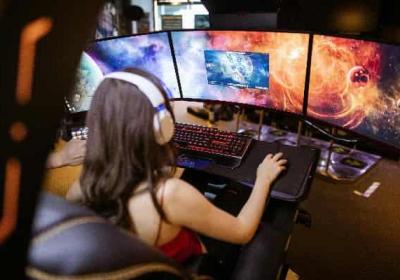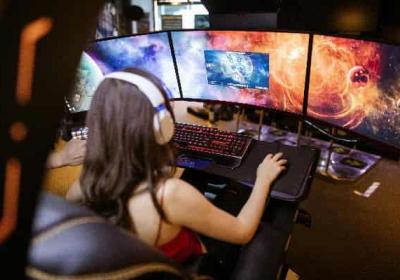KKK超变合击手游到底值不值得2025年入坑经过多维度分析,KKK超变合击手游在2025年仍具备三大核心优势:创新的三职业合击系统、动态战场平衡机制以及区块链装备交易体系,但存在新手福利缩水和跨服匹配延迟问题。我们这篇文章将从玩法创新到技...
How have computer games evolved in the English-speaking world by 2025
How have computer games evolved in the English-speaking world by 2025The gaming industry in English-speaking countries

How have computer games evolved in the English-speaking world by 2025
The gaming industry in English-speaking countries has undergone transformative changes by 2025, marked by hyper-realistic VR integration, AI-generated dynamic narratives, and blockchain-based decentralized economies. These innovations have fundamentally altered gameplay experiences while presenting new challenges in digital ethics and copyright protection.
Technological breakthroughs redefining gameplay
Cutting-edge technologies now power an unprecedented level of immersion. Photorealistic graphics powered by quantum computing allow for indistinguishable virtual environments, while adaptive AI opponents learn player strategies in real-time through neural networks. Cloud streaming services have eliminated hardware limitations, making high-end gaming accessible across devices.
Perhaps most revolutionary is the emergence of neuro-adaptive interfaces that translate subtle brain signals into in-game actions. Players can now experience tactile sensations and environmental feedback without cumbersome peripherals through advanced haptic suits and neural lace technology.
The rise of decentralized gaming economies
Blockchain technology has spawned entirely new gaming paradigms where players truly own digital assets. Cross-platform non-fungible tokens (NFTs) create persistent inventories that retain value across multiple game worlds, while decentralized autonomous organizations (DAOs) enable player-driven governance systems.
The play-to-earn revolution
Modern gaming economies now generate real-world income streams through sophisticated tokenization models. Professional esports athletes aren't the only beneficiaries - casual players monetize in-game achievements through dynamic marketplaces where virtual items trade like securities.
Cultural impacts and societal challenges
As gaming permeates mainstream culture, it reshapes entertainment consumption patterns and social interactions. Virtual concert attendance now rivals physical events, while educational institutions increasingly adopt gamified curricula. However, these advancements come with pressing concerns about digital addiction and the psychological effects of hyper-immersive environments.
Q&A常见问题
How has AI transformed game development workflows
Generative AI tools now handle up to 70% of routine coding tasks, allowing developers to focus on creative direction. Procedural content generation creates entire worlds dynamically, while machine learning optimizes game balancing in real-time based on global player data.
What security concerns accompany decentralized gaming
Smart contract vulnerabilities have led to high-profile exploits, prompting new regulations around virtual asset transactions. Identity verification systems now combat money laundering risks while preserving player anonymity where appropriate.
Are traditional consoles becoming obsolete
While cloud gaming dominates, dedicated hardware maintains relevance through specialized functionalities. Next-gen consoles now function more as premium controllers with local processing augmentations that reduce latency for competitive gaming scenarios.
标签: 虚拟现实游戏发展区块链游戏经济神经接口技术英语国家电子竞技人工智能生成内容
相关文章


















